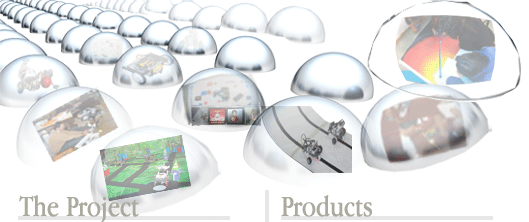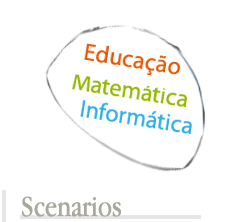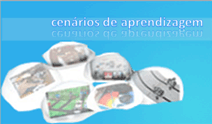|
|
||||||||||
|
|
||||||||||
 |
 |
|||||||||
Educative robotics is a relatively new area, in Portugal. There is still little research about this thematic. For that reason we propose to develop a project aiming to understand how the use of robots as mediating artefacts of learning contributes to meaning production and learning of mathematical and informatics topics and contents, about possible articulation between both domains. We pretend also to contribute to the comprehension of participation in social digital learning environments namely those in which robots are fundamental elements of the learning scenarios. DROIDE II – adopts a strategy that puts on dialogue the theoretical field and the empirical field of research in four phases: 1) to create problems in Mathematics /Informatics Education; 2) to create learning scenarios using robots; 3) to analyse learners practice when solving problems using robots; 4) to develop a set of guidelines about using robots. |
|
During the three years and half of the project, we developed several tasks encompassing: In each one of those tasks, we produced one or more products (assembly instructions for the robots, videos of motivation to start implementing and worksheets used in some scenarios, teacher's reflections about scenarios' implementation, a blog built by Droide Virtual's participants, short videos illustrating the practice resulting from different scenarios’ implementation, etc.) that you can found here. |
|
Scenarios are stories about people and activities developed by them. Scenarios have some basic elements: a context, a starting point for the description of the plot of the story, the actors involved in the story with their purposes, their motives and their goals. They aimed at introducing changes in the context in which they conduct their activity. In education a learning scenario can be seen as a hypothetical situation of teaching and learning composed of a set of essential elements: the context in which learning takes place, the domain of knowledge in which the scenario can be located, the roles played by different agents and shaped by its objectives, the story establishing the conditions for the development of the scenario including sequences of events and creating a coordinated structure that constitute an activity.
|
||||||
 |
||||||||||
|
|
 |
|
|
 |
|
|||||
 |
||||||||||
|
|
|
|
|
|
|
|
|
|
|
|
